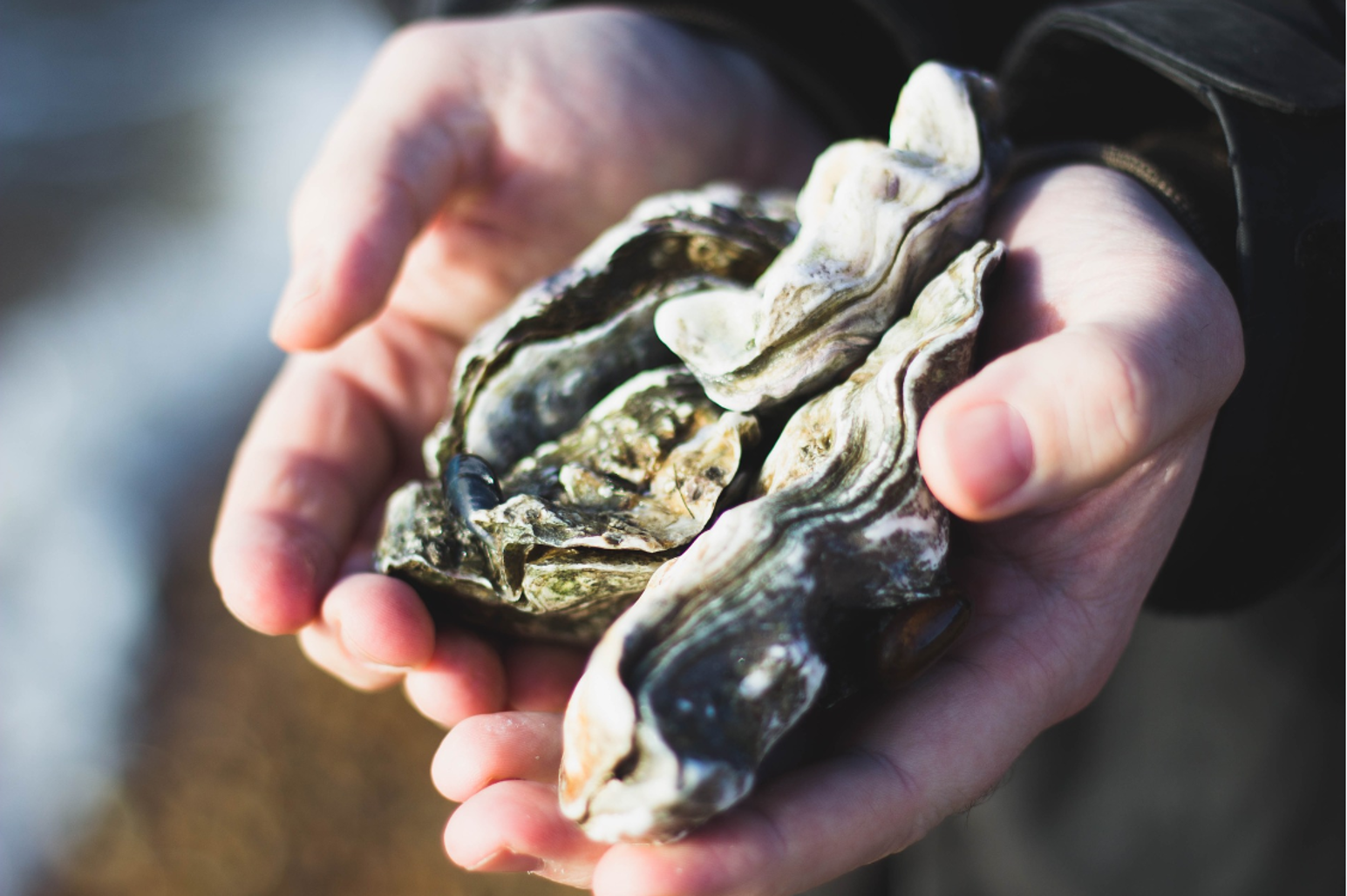
The Aquatic Animal Health Group, headed by Professor Sarah Culloty, specialises in ecological parasitology and immunology. Much of the research produced by this group focuses on diseases of commercially significant bivalve shellfish (oysters, clams, mussels, scallops, cockles). However, some work is also ongoing on other groups (crabs, polychaetes, gastropods, tunicates), investigating general aspects of invertebrate biology. The Group is heavily involved in collaborative research with numerous active partners across Europe and further afield. Recent research interests include looking at the impact of potential climate change drivers on disease development in the marine environment.
Recent Publications
Vera, M., Culloty, S.C., Lynch, S.A. et al. 2023. Heterogeneous microgeographic genetic structure of the common cockles (Cerastoderma edule) in the Northeast Atlantic Ocean: biogeographic barriers and environmental factors. Heredity (Nature.com) http://dx.doi.org/10.1038/s41437-023-00646-1
Lynch, S.A., Culloty, S.C. 2022. Chapter 8 ‘The native oyster Ostrea edulis in Ireland: its past challenges and future prospects” in Coastal Environment in the West of Ireland: Sea, Land and Spirt. Edited by John Roney and Mark Beekey. Cambridge Scholars Publishing.
Costello, K.E., Haberlin, D., Lynch, S.A., McAllen, R., O’ Riordan, R.M., Culloty, S.C. 2022. Regional differences in zooplankton-associated bacterial communities and aquaculture pathogens across two shelf seas. Estuarine Coastal and Shelf Science http://dx.doi.org/10.1016/j.ecss.2022.108179
Mahony, K., Lynch, S.A., de Montaudouin, X., Culloty, S.C. 2022. Extrinsic and intrinsic drivers of parasites prevalence and parasite species richness in a marine bivalve. Plos One http://dx.doi.org/10.1371/journal.pone.0274474
Kett, G.F., Jansen, M.A.K., Culloty, S.C., Lynch, S.A. 2022. The impact of UV-B radiation on pacific oyster Crassostrea gigas health and pathogen Vibrio aestuarianus development. Journal of Experimental Marine Biology and Ecology http://dx.doi.org/10.1016/j.jembe.2022.151783
Costello, K.E., Lynch, S.A., McAllen, R., O’ Riordan, R.M., Culloty, S.C. 2022. Assessing the potential for invasive species introductions and secondary spread using vessel movements in maritime ports. Marine Pollution Bulletin http://dx.doi.org/10.1016/j.marpolbul.2022.113496
Lynch, S.A., Rowley, A.F., Longshaw, M., Malham, S.K., Culloty, S.C. 2022. Diseases of Molluscs in book: Invertebrate Pathology. Publisher Oxford University Presshttp://dx.doi.org/10.1093/oso/9780198853756.003.0008
Kett, G.F., Culloty, S.C., Jansen, M.A., Lynch, S.A. 2022. Development of a sensitive polymerase chain reaction (PCR) and digoxigenin (DIG)-labeled in situ hybridsation (ISH) for the detection of Vibrio bacteria in the Pacific oyster Crassostrea gigas. Aquaculture Reportshttp://dx.doi.org/10.1016/j.aqrep.2021.100961
Lynch, S.A., Breslin, R., Bookelaar, B., Rudtanatip, T., Wongprasert, K., Culloty, S.C. 2021. Immunomodulatory and antiviral effects of macroalgae sulphated polysaccharides: case studies extend knowledge on their importance in enhancing shellfish health, and the control of a global viral pathogen ostreid herpesvirus-1 microVar. Polysaccharides http://dx.doi.org/10.3390/polysaccharides2020014
Bookelaar, B., Lynch, S.A. & Culloty, S.C., 2020. Host plasticity supports spread of an aquaculture introduced virus to an ecosystem engineer. Parasites Vectors, 13, 498. https://doi.org/10.1186/s13071-020-04373-y
Carss, D.N., Brito, A.C., Chainho, P., Ciutat, A., de Montaudouin, X., Otero, R.M.F., Filgueira, M.I., Garbutt, A., Goedknegt, M.A., Lynch, S.A. and Mahony, K.E., 2020. Ecosystem services provided by a non-cultured shellfish species: The common cockle Cerastoderma edule. Marine Environmental Research, p.104931. https://doi.org/10.1016/j.marenvres.2020.104931
Mahony, K.E., Lynch, S.A., Egerton, S., Cabral, S., de Montaudouin, X., Fitch, A., Magalhães, L., Rocroy, M. and Culloty, S.C., 2020. Mobilisation of data to stakeholder communities. Bridging the research-practice gap using a commercial shellfish species model. PloS one, 15(9), p.e0238446. https://doi.org/10.1371/journal.pone.0238446
Lynch, S.A., Lepée-Rivero, S., Kelly, R., Quinn, E., Coghlan, A., Bookelaar, B., Morgan, E., Finarelli, J.A., Carlsson, J. and Culloty, S.C., 2020. Detection of haplosporidian protistan parasites supports an increase to their known diversity, geographic range and bivalve host specificity. Parasitology, 147(5), pp.584-592. https://doi.org/10.1017/S0031182019001628
Albuixech-Martí, S. Lynch, S.A., Culloty, S.C., 2020. Biotic and abiotic factors influencing haplosporidian species distribution in the cockle Cerastoderma edule in Ireland. Journal of Invertebrate Pathology, 107425. https://doi.org/10.1016/j.jip.2020.107425.
Lynch, S.A., Coghlan, A., Morgan, E. and Culloty, S.C., 2020. Northward establishment of the Mediterranean mussel Mytilus galloprovincialis limited by changing climate. Biological Invasions, pp.1-12. https://doi.org/10.1007/s10530-020-02294-6
Egerton, S., Lynch, S.A., Prado-Alvarez, M., Flannery, G., Brennan, E., Hugh-Jones, T., Hugh-Jones, D. and Culloty, S.C., 2020. A naïve population of European oyster Ostrea edulis with reduced susceptibility to the pathogen Bonamia ostreae: are S-strategy life traits providing protection? Integrative and Comparative Biology, icaa071. https://doi.org/10.1093/icb/icaa071
Costello, K.E., Lynch, S.A., McAllen, R., O’Riordan, R.M. & Culloty, S.C., 2020. The role of invasive tunicates as reservoirs of molluscan pathogens. Biological Invasions.
Kett, G.F., Culloty, S.C., Lynch, S.A., Jansen, M.A.K., 2020. Solar UV radiation modulates animal health and pathogen prevalence in coastal habitats – knowledge gaps and implications for bivalve aquaculture. Marine Ecology Progress Series.
Group Profiles
Prof Sarah Culloty
Sarah is the Principle Investigator for the Aquatic Animal Health Group. She is also Head of the College of Science, Engineering and Food Science at UCC.
A Zoologist and Marine Biologist in the School of Biological, Earth and Environmental Sciences (BEES), her main area of research is in ecological parasitology with a particular focus on molluscan diseases. The focus of her research centres on pathogen (macroparasites, protozoa, bacteria and viruses) life cycles, epidemiology, diagnostics and approaches to reducing impacts of disease. Recent research looks at the impact of potential climate change drivers on disease development in the marine environment. Sarah has a h-index of 35 and i10-index of 91 with 5080 citations. While at UCC, Sarah has won 20 research grants totalling over €5 million.

https://www.linkedin.com/in/sarah-culloty-38123965/
https://www.researchgate.net/profile/Sarah_Culloty
Dr Sharon Lynch
Sharon is a Research Fellow and Co-PI of the Aquatic Animal Health Group. Sharon’s research interests and expertise are in ecoparasitology, invertebrate pathology, aquatic animal health, biotherapeutics and photodynamic therapies.
A primary focus of Sharon’s research is assessing the performance of shellfish species and their pathogens in a changing marine environment to support BlueGrowth, looking at environmental parameters associated with meteorological extremes, pathogen range/host expansion and evolution (genetic and morphology), and microplastics. Invasive species and their potential to act as hosts/carriers/reservoirs for pathogen groups is a new research area that Sharon has been working in.
Sharon has a h-index of 22 and an i10-index of 43 with a total of eighty scientific publications (1786 citations). Sharon is the senior author of nineteen of these scientific publications in leading peer-reviewed journals (https://www.researchgate.net/profile/Sharon_Lynch). Sharon is the senior author of two book chapters; ‘Diseases of Molluscs’ in Invertebrate Pathology with Oxford University Press and ‘The native oyster Ostrea edulis in Ireland: its past challenges and future prospects’ in Sea, Land, and Spirit: coastal environment in the west of Ireland with Cambridge Scholars Publishing. Sharon is a co-author for Chapter 2 “Universal Monitoring Metrics” in the European Native Oyster Habitat Restoration Monitoring Handbook as part of the Native Oyster Restoration Alliance (NORA).

https://scholar.google.com/citations?view_op=list_works&hl=en&user=KL9YDMgAAAAJ
https://www.researchgate.net/profile/Sharon_Lynch
https://www.linkedin.com/in/lynch-sharon-bsc-phd6326a583
Dr. Catherine Collins is a Senior Postdoctoral Fellow who joined the research group in 2023 and is working on the SusAqua Project “Sustainable Aquaculture: Advancing Irish bivalve biomass production by promoting seed abundance and more disease resilient stocks”, which is funded by the Marine Institute. The overarching objective of the SusAqua Project is to advance biomass production of Irish mussel and oyster stocks by promoting optimal reproductive output in mussels (Mytilus spp.) and oysters (Ostrea edulis), as well as having a better knowledge on the drivers and inhibitors of pathogens and diseases.

Vivian Hlordzi commenced her PhD in 2022 with the BIVALVE Project “Bridging Research & Practice to Improve the Future Sustainability and Growth of the Irish Bivalve Industry”, which is funded by the Department of Agriculture, Food and the Marine (DAFM) and is a collaborative project with the Marine Institute. BIVALVE focuses on shellfish as a key component for further development of a national sustainable aquaculture and fisheries economy. A number of objectives include recommending, implementing and monitoring best practices for the smart production of shellfish as well as assessing and promoting the socio-economic and ecosystem services (biodiversity enhancement, carbon sequestration, nutrient recycling, etc.) provided by Irish bivalve aquaculture.

Dulani Wickramanayaka commenced her PhD in 2023 with the BIVALVI Project “Advancing European bivalve production systems”, which is funded by the BlueBio Cofund programme and manage by the Marine Institute. BIVALVI aims to advance bivalve production in Europe in a sustainable way by combining genetics and reproductive technologies with improved health and production management. BIVALVI focuses on blue mussel, Manilla clams and Pacific oysters, the bivalve species with the highest production in Europe. BIVALVI combines technology and social sciences to enhance the impact and acceptability of bivalve production.

Aquatic Animal Health Group Research Projects